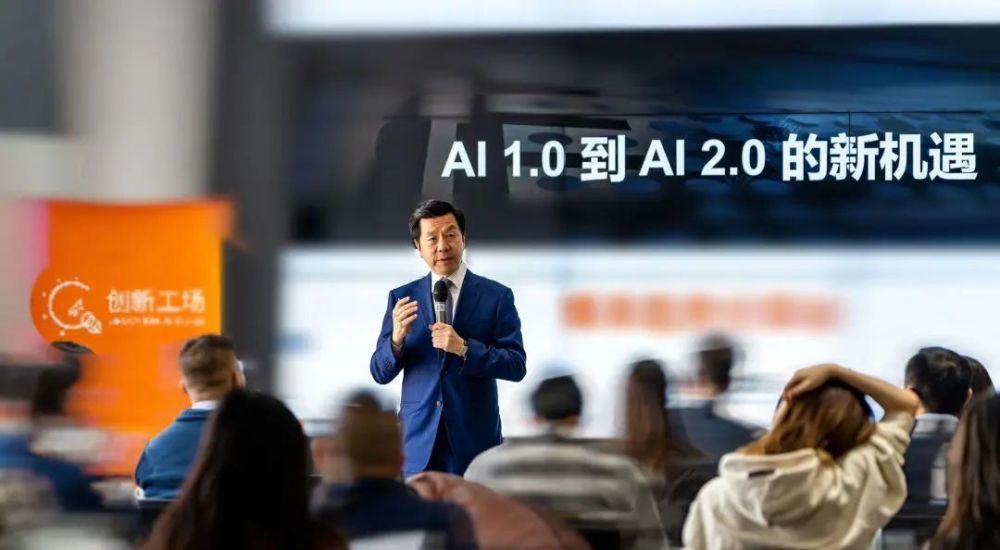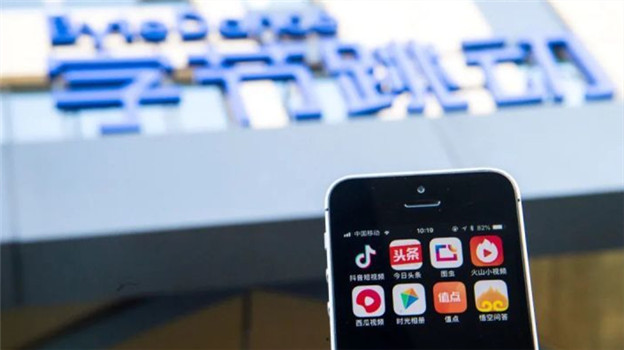
9月7日,《时代》周刊(TIME)公布2023年度“AI领域百大影响力人物”榜单,创新工场董事长兼CEO李开复博士入选其中全球 25位 “AI领袖”。
这是《时代》周刊首次评选全球百大AI领域最有影响力的人物。这份名单分为4大类,分别包括领袖、创新者、塑造者及思想家,名单包含许多全球知名人物。
“领袖”类别共有25人入选,涵盖了许多知名AI公司高管,包括 OpenAI CEO 萨姆·奥特曼,特斯拉及 X.ai CEO 埃隆·马斯克、谷歌 DeepMind CEO Demis Hassabis,英伟达创始人兼CEO黄仁勋、硅谷顶级投资机构 a16z 创始人马克·安德森、DeepLearning.AI 创始人吴恩达、百度董事长兼CEO李彦宏、领英联合创始人里德·霍夫曼等。李开复博士也是唯一入围“领袖”的华人投资人,并于今年入场创办了 AI 2.0 公司“零一万物”。
值得一提的是,2018年图灵奖得主、深度学习领域的三位巨头GeoffreyHinton、Yoshua Bengio、Yann LeCun都获得了“思想家”殊荣;斯坦福大学教授李飞飞、中科院教授曾毅也因对人工智能突出贡献而当选“思想家”。
“创新者”部分主要涵盖了作家和艺人,包括华裔美国科幻小说作家姜峯楠(Ted Chiang)。
TIME100 AI 的名单上有各种各样的人物,年龄跨度从18岁的Sneha Revanur到76岁的Geoffrey Hinton。这100个人是推动AI发展的重要力量,他们既是商业竞争和法规制定者,也是科研人员和艺术创作者,当然还包括一些企业高层。他们在合作和竞争中展示出的见解、愿望和缺点,将决定AI 这项越来越具影响力的技术的发展方向。
《时代周刊》多位资深编辑用了几个月的时间,搜集了来自数十个来源的建议,将数百人的提名汇集在一起,才有了现在的“AI 最有影响力100人”名单。《时代周刊》几乎采访了该名单上的所有人,深度询问了他们对AI的看法、发展以及未来趋势。他们有信心为世界带来安全、稳定、可靠的AI服务。
以下文字翻译自《时代》周刊采访:
今年3月,李开复博士在创新工场北京总部分享了最新的AI 2.0科技趋势和投资机遇。
四十多年来,李开复一直是世界计算机科学领域的先锋人物。1988年,李开复的博士论文开创了全球首个“非特定人的大词汇量连续语音识别系统” Sphinx。此后,他历任苹果、微软高管,以及谷歌中国总裁等职。
作为总部位于北京的Tech VC创新工场的董事长兼CEO,李开复率领团队管理着总额30亿美元的双币基金。在 2018 年他撰文指出,要达到超越人类能力、并能执行大多数认知任务的通用人工智能(AGI)完全落地,仍然需要几十年的时间。快进到2023年,大语言模型(LLM)迅猛发展和ChatGPT等现象级应用迅速席卷全球,AI从1.0 迈向2.0时代,意味着“从某些维度而言,或许AGI已经提早与我们近在咫尺。”李开复告诉《时代》周刊。
正是这一振奋人心的AI技术突破,促使61岁的李开复于今年七月创办了一家新的AI 2.0平台型公司“零一万物",他表示,大语言模型(LLM)技术“是中国不能错过的历史性机遇。”
李开复不仅仅是一名企业家,他还是一位坚定的未来主义者和癌症幸存者,曾撰写关于AI替代人类工作的现象和解决方案等一系列AI重塑未来的文章和著作。当AI 能力以超过任何人所想象的速度飞进时,这种颠覆的时间表也被大幅缩短,迫使所有人必须争分夺秒,未雨绸缪,政府需制定出既能保护人们、又不会扼杀AI所带来巨大价值的监管政策。
李开复表示:“AI拥有如此强大的力量,能够带来人类社会前所未见的全新机遇,但它也可能被滥用,用来恶意害人或者制造新武器、或者利用虚假信息来操纵人们为恶或谋利。前方还有许多工作等着我们,我深深相信要用技术解决技术带来的问题,让AI真正向善。”
《时代》周刊原文如下:
Kai-Fu Lee wasn’t sure he would see this moment. The Taipei native has been at the vanguard of computer engineering for over four decades, having created what he claims was the world’s first large-vocabulary speech-recognition model for his doctoral dissertation back in 1988, and later serving as a top executive for Apple and Microsoft, as well as head of Google in China.
Still, as recently as 2018, Lee, who is chairman and CEO of Beijing-based Sinovation Ventures, a venture-capital firm that manages $3 billion in Chinese high-tech assets, wrote that artificial general intelligence (AGI)—a hypothetical future technology that can perform most cognitive tasks better than a human—was still decades away. Yet in 2023 the rapid advances of large language model (LLM) applications like ChatGPT means that “by some measures, we’ve already achieved it,” Lee tells TIME. “By other measures, it’s within grasp.”
It’s this astonishing progress that spurred Lee, 61, in July to launch a new language startup, 01.AI, writing that LLM technology “is a historic opportunity that China cannot miss.”
Lee is more than an entrepreneur. He’s an avowed futurist and cancer survivor who has written prolifically about job displacement and the various social upheavals that the AI revolution is already bringing. And as AI capabilities advance faster than anyone thought possible, the timeline for that disruption has also been dramatically shortened, putting the onus on governments to make necessary preparations. The clock is ticking to enact regulation that protects people without stymieing the enormous benefits AI can bring. “A lot more needs to be done,” says Lee. “When AI is this powerful, able to come up with things that we didn’t know before, it might be used to come up with new ways of harming others, of creating weapons, [or] using misinformation to manipulate people for profit or evil intent.”



















